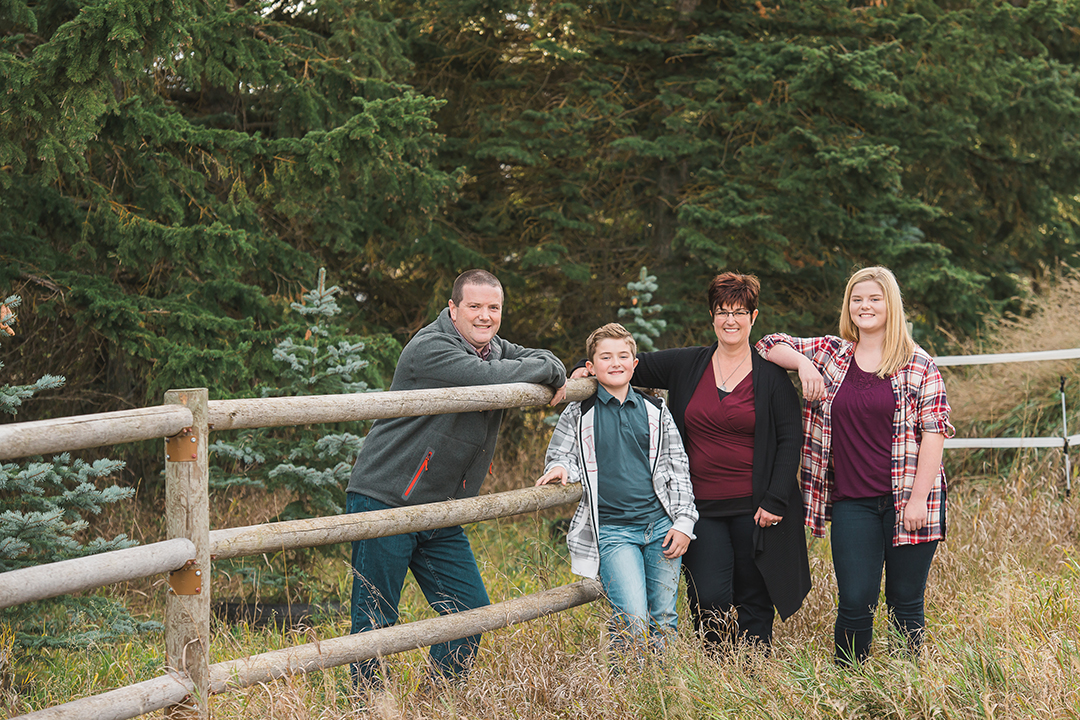
Agriculture integral part of vet’s work and life
Most people know Dr. Andrew (Andy) Acton first and foremost as the owner-operator of Deep South Animal Clinic in Ogema, Sask., a mixed-animal practice where he spends his days working to make both small and large animals alike live happy, healthy lives.
By HenryTye GlazebrookHowever, Acton is just as much a part of the animal production industry as many of his clients are. A thinner slice, perhaps, given his relatively small herd of 40 cows — but even so, he thinks the role has granted him a stronger connection and greater credibility with the people he serves.
“They know that in the summertime I’m going to be out there with, say, a broken down tractor and dealing with the other same issues that they deal with,” Acton says. “Once in a while we’ll lose a cow or have a health issue, and I’m dealing with it the same as anyone else. When my clients are describing things to me, sometimes I’ve run into the same problem with my own cattle.”
Acton, who graduated from the Western College of Veterinary Medicine (WCVM) in 1992, credits his childhood years on his family’s farm with sparking a lifelong love of animals. After completing his veterinary degree, Acton went on to pursue further training: he became a diplomate with the American Board of Veterinary Practitioners and is certified in beef cattle practice.
While his interest in animals grew into a particular affinity for bovine health, Acton says he makes a point of treating animals of all kinds in his clinic. This is partly due to the wide range of species in the area in which he practises, but also because he believes the breadth of work helps to cultivate his own knowledge base.
“We have a mixed practice and I enjoy all of it, so I’ll take care of lots of dogs and cats and horses, too,” he says. “I learn a lot of stuff from the other species that I think helps me stay a good veterinarian — things I learn from cattle that might help me with horses or surgeries that I do in small animals that help me do things in livestock that I wouldn't otherwise try.”
For both his own livestock and those of his clients, Acton looks to the strengths of preventive medicine as a key factor in promoting overall health and wellness. His goal is to spend less time fixing concerns that could be avoided through herd management and more time addressing the unforeseeable issues that are impossible to plan for in advance.
“I want to have a better quality of problem, and that’s what I think with our clients, too,” he says. “I want to help them with the occasional broken leg on a calf or an intestinal problem we have to do surgery on. I want to help them with preventive medicine so that we’re not dealing with things like calves with diarrhea or large outbreaks of respiratory disease in their cattle.”
Acton maintains strong ties with veterinary medicine’s educational community, bringing students from schools across Canada through externships at his practice or as summer help with his cattle. It’s these bright, hungry minds — and institutions like WCVM, helping them grow their understanding of animal health — that he sees as integral to the economical and agricultural health of Saskatchewan and Canada as a whole.
“Our livestock sector is really important to the whole economy of Saskatchewan,” Acton says. “The demand for that type of service is growing in cities and rural communities, but we need a strong veterinary school that can contribute to teaching, research and extension work out to producers across the province. WCVM is crucial to that.”
